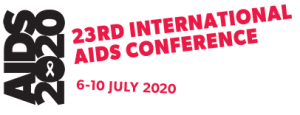Experience 24-hour access to breaking HIV science like never before! AIDS 2020: Virtual will showcase important new advances in HIV prevention science,
In light of the COVID-19 pandemic AIDS 2020 will become the first virtual edition of the International AIDS Conference.
On National Women and Girls HIV/AIDS Awareness Day by Cynthia Carey-Grant
As a woman, I know from personal experience that when it comes to achieving the goal of an AIDS-free generation, the idea of “one size fits all” is false and misleading. And yet, most of the prevailing strategies to end the HIV and AIDS epidemic attempt to do just that.
What is needed are tailored strategies that appropriately fit those who are disproportionately impacted within their identified communities, especially when it comes to women and girls. For instance, let’s look at what this means specifically for women in the United States. According to the US Centers for Disease Control and Prevention: Women still make up almost 20% of the new HIV infections in the U.S.
- Women still make up almost 20% of the new HIV infections in the U.S.
- 86% of new HIV infections among women are from heterosexual contact.
- 70% of new HIV diagnoses among women in the U.S. are between ages of 25-54.
- 59% of new HIV diagnoses among women in the U.S. are African American.
- The greatest risk of HIV infection for heterosexual African American women is unprotected sex with a male partner.
Based on these facts and using the particularly vulnerable population of African American women as an example, one logical conclusion is that for any national or local strategy to be successful, it should specifically address the unique needs of black women. Black women want women-centered health services that address HIV prevention and treatment as a social justice issue. That means addressing HIV as it relates to women’s real lives, including the prevailing stigmatization that keeps some women from seeking care and staying in care, and other social determinants that impact HIV positive women and their families, including lack of affordable housing, jobs and food security.
The same analogy applies to the inclusion and empowerment of young people, whom without their buy-in and leadership, the promise of an AIDS-free generation becomes hollow. Not enough youth are included at the policy and program development tables where strategies affecting them are designed. Unfortunately, this is true even at community-based organizations on the ground. Their cry, “nothing about us without us” resonates as a truth that demands accountability. And we at the frontline of the HIV community need to respond, “Yes, you are right we must do better.” We often hear, “our youth are our future” and nowhere is this more applicable then in our goal of an AIDS-free generation. We literally cannot make it without them.
It’s not enough to posit, “We may not be where we ought to be, but thank God we aren’t where we used to be.” We need to speak up and act up for justice again. We need to actively support and call for greater resources and funding that addresses the reality of those living with and, affected most by, HIV.
We need greater public awareness around HIV prevention and treatment, and that requires full inclusion of people directly impacted and on the front lines. It was the power of outrageous action fueled by love and compassion that turned the tide of the HIV epidemic once before. Quite possibly, the path to an AIDS-free generation may lie in the lessons from the past signified by the motto ‘Silence equals Death.’
It’s time to focus, partner and achieve…again.
Cynthia Carey-Grant is a HIV/AIDS prevention advocate and activist, and former executive director of WORLD, Women Organized to Respond to Life-threatening Disease, a nonprofit based in Oakland, CA and an affiliate of the AIDS Healthcare Foundation (AHF). Ms. Carey-Grant is a Co-Chair of the 23rd International AIDS Conference (AIDS 2020).
Organizers of the world’s largest conference on HIV and AIDS launched registration for AIDS 2020,
More questions than answers remain in the global fight against HIV and AIDS.









